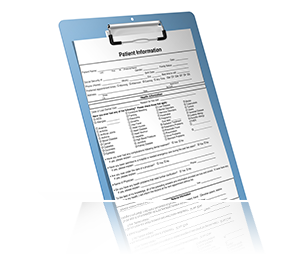Dr. Eric Chatterley
-

-
9299 South Broadway, Ste 200
Highlands Ranch, CO 80129
Post Op Instructions
It is important to follow instructions after you have a dental appointment to ensure proper healing and to avoid complications. As a rule of thumb, you should always wait two hours after surgery before eating to let the anesthesia wear off. Trying to eat before this could result in soft tissue damage because you are not able to feel all of your mouth. The instructions found below are guidelines. After your appointment the doctor or dental assistant will give you full instructions on how to properly recover after a procedure.
Anesthesia
The numbness normally wears off and normal senesation returns within 3-5 hours. It is important that you avoid activities that increase your chances of biting your cheek or tongue while you are numb (i.e. - eating, chewing gum, or sometimes even talking). Children must be watched carefully, even after being warned against biting themselves, as they are not always aware that the rubbery "something" they are chewing is their lip, tongue, or inside of their cheek. Serious injury may result!
Root Canal Therapy
You can expect soreness after a root canal procedure for a few days. You should avoid chewing on the side of your mouth where the procedure was performed so you do not irritate the area and also to ensure that the temporary restorative material properly sets. You may or may not have to take an antibiotic to treat any remaining infection in your tooth. If you notice an increasing amount of pain or tenderness, a reaction to the medication, or the loss of the temporary restoration (filling) call our office right away.
Crowns and Bridges
Before you receive your permanent crown/bridge you will first receive a temporary restoration. This is not as sturdy as the permanent version, so you should be careful when cleaning and eating. You should brush the area gently and should not pull up on the tooth when flossing because it could become dislodged. The same goes for eating. You should avoid hard or sticky/chewy foods while you have the temporary in place.
There may be some sensitivity and irritation after the temporary or permanent crown/bridge is placed. This is normal and will subside after the soft tissue heals. A warm salt water rinse will help, and you can also take Advil or Tylenol if the pain does not go away.
When the permanent crown or bridge is placed it may feel a little awkward for a few days. Your mouth needs to adjust to the new tooth, and it should feel like one of your natural tooth in less than a week. If your bite feels abnormal in any way, you should let your dentist know. Caring for your bridge or crown is just like caring for your own teeth. You should brush and floss regularly.
White Fillings (Bonding)
After the anesthesia wears off your teeth may be sensitive. You should avoid hot and cold food or drink for the next few days. After that initial period, your treated teeth will feel as good as new. Continue your normal hygiene plan to ensure that your fillings last for a long time.
Silver Fillings (Amalgam)
Silver restorations take awhile to reach their maximum strength. They may break if used for chewing before this strength is reached. DO NOT CHEW FOR AT LEAST 8 HOURS after your appointment. However, you may drink during this time: shakes, protein drinks, soft drinks, yogurt, etc. During the next eight-hour period, meals should be soft - nothing crunchy. After 16 hours, yo may resume your normal diet.
Scaling and Root Planing
After this procedure your gums will probably be slightly sore and irritated for a few days. You should rinse your mouth with warm salt water (1 tsp salt/8 oz water) 2-3 times a day. This will relieve the pain and cleanse the area. Brushing and flossing should be continued right after the procedure, but you should brush gently so that you do not further irritate the area. If you experience any swelling or stiffness in the area you can place a cold compress on the area and take some pain relieving medicine. Avoid any hard or chewy foods for 2-3 days after the surgery to ensure the area heals correctly. If you continue to experience pain or swelling after a few days contact your dentist.
Extractions
After the surgery you will need to rest. You can expect for the extraction site to bleed for a little while after the surgery. Gauze will be applied at the completion of the surgery, and you will need to change it when it becomes soaked. If bleeding continues for longer than 24 hours you should call your dentist. Rest when you return home, but do not lie flat. This could prolong the bleeding. Prop your head up on a pillow when lying down. Your dentist may prescribe you pain medication, so if you become sore take as directed. You can also use an ice pack for the pain.
You will be limited to soft foods for a couple days after your surgery. Some recommended foods are:
- Gelatin
- Pudding
- Yogurt
- Mashed Potatoes
- Ice Cream
- Thin Soups
- ...and other food you can eat without chewing.
When drinking, make sure you do not use a straw. The sucking motion can loosen your sutures and slow the clotting process. The same goes for smoking. If you have prolonged pain, bleeding, irritation, or don't feel that the extraction site is healing properly call your dentist for a follow up.
Self Management for TMJ and Jaw Pain
- Use Hot or Cold Packs - Apply moist heat, ice or a combination of the two to the painful areas. Most prefer heat, but if that increases your pain, use either the combination or the ice along.
- Eat Soft Foods - Confine your diet to soft foods such as casseroles, soft fruits, soups, eggs and yogurt. Do not chew gum or eat hard foods (raw carrots) or chewy foods (caramels, steak or bagels). Cut other food into small pieces and chew on both sides of your mouth to reduce strain on the one side.
- Rest Your Jaw Muscles - Keep your teeth apart except when eating and practice good posture. When you are not chewing, your teeth should almost never touch. Good head, neck and back posture help you maintain good jaw posture.
- Avoid Caffeine - Caffeine stimulates your muscles to contract and therefore, become more tense.
- Watch Your Habits - Avoid clenching or grinding your teeth; avoid biting your cheeks, lips or objects you put in your mouth; avoid pushing your tongue against your teeth.
- Sleep Smart - Avoid sleeping habits that strain your jaw muscles or joints. Don't sleep on your stomach, and if you sleep on your side, keep your neck and jaw aligned.
- Use Medications if needed - Use anti-inflammatory and pain-reducing medications like Aleve, Ibuprofen, Tylenol, Aspirin to reduce joint and muscle pain. Avoid medications with caffiene.
Emergency
If you have a dental emergency please call Dr. Chatterley at 303-791-6700. If you have a medical emergency please dial 911.



